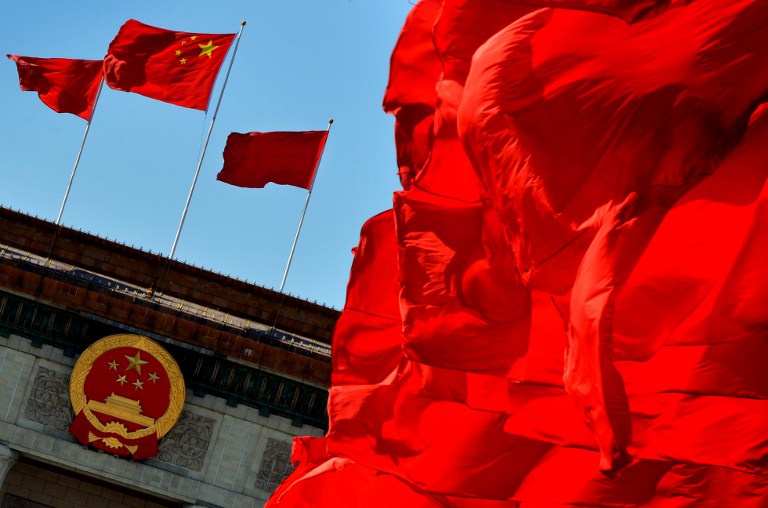SUMMARY
This is AI generated summarization, which may have errors. For context, always refer to the full article.

BEIJING, China – China’s Communist Party will on Wednesday, November 14, close a congress tasked with choosing a new circle of leaders who face major economic challenges and growing scrutiny from an increasingly demanding population.
The congress is by far China’s most important political event as it chooses who leads the party and nation, and this year’s gathering is expected to see Vice President Xi Jinping selected as China’s chief for the next decade.
The gathering of more than 2,200 ruling party delegates from around the country, held at Beijing’s Great Hall of the People, will close before midday after selecting a new central committee of 200 or so party leaders.
On Thursday, that committee will meet to determine still higher bodies culminating in China’s most powerful governing circle, the Politburo Standing Committee, which currently has nine members and which Xi looks set to lead.
Xi’s ascension has been expected since 2007, when he was given a position on the standing committee. That indicated his status as heir apparent to current President Hu Jintao, who officially relinquishes party control this week.
Under the party’s Leninist structure, top leadership posts are decided in back-room political deals between factions that break down largely on regional and patronage lines but lack sharp policy differences — at least in public.
Thursday’s new top circle is also expected to include a prominent post on the committee for current Vice Premier Li Keqiang.
Xi is expected to complete his takeover in March when China’s rubber-stamp legislature officially names him the nation’s president, while Li is strongly believed destined for the premiership, replacing incumbent Wen Jiabao.
They are expected to serve two five-year terms.
They will take over at an uncertain time, when China’s powerhouse economy is suffering a rare slowdown, undercutting the party’s key claim to legitimacy — continually improving the livelihoods of the country’s 1.3 billion people.
Localised unrest is widespread in China, typically sparked by public anger over corruption, government abuses or the myriad manifestations of anger from millions left out the country’s newfound prosperity.
Anti-Chinese unrest in ethnic Tibetan areas also has flared with a spate of self-immolation protests over the past week.
In a speech opening the congress last Thursday, Hu warned the party, in power since 1949, must address festering problems of corruption, environmental degradation, and calls for more political freedoms.
Widespread graft in particular, could prove “fatal” to the party, he said.
Beijing also employs a huge censorship apparatus to snuff out — not always successfully — anger at the government expressed by hundreds of millions of users of bustling social media sites.
The run-up to this year’s congress was further unsettled by the scandal surrounding Bo Xilai, a former rising political star whose ambitions were torpedoed this year when his wife was given a suspended death sentence for the murder of a British businessman.
Battening down for the congress, authorities have flooded central Beijing with security, and placed hundreds of activists under house arrest, rights groups say. – Agence France-Presse
Add a comment
How does this make you feel?
There are no comments yet. Add your comment to start the conversation.